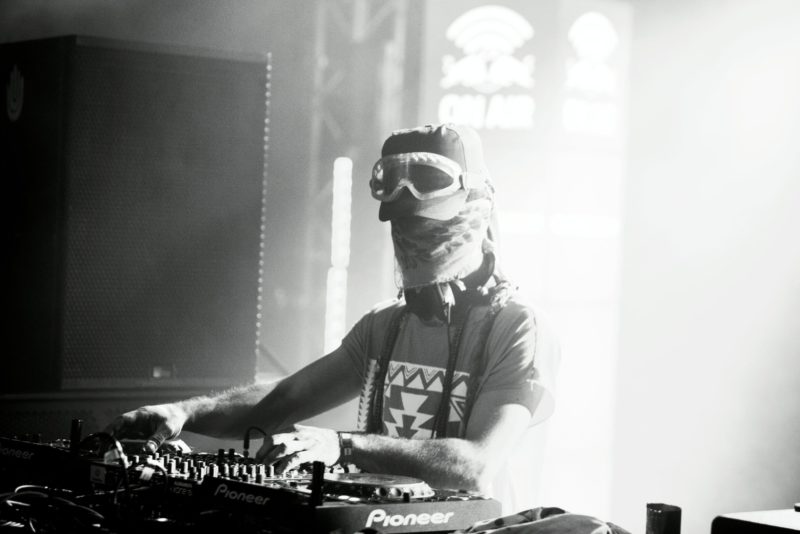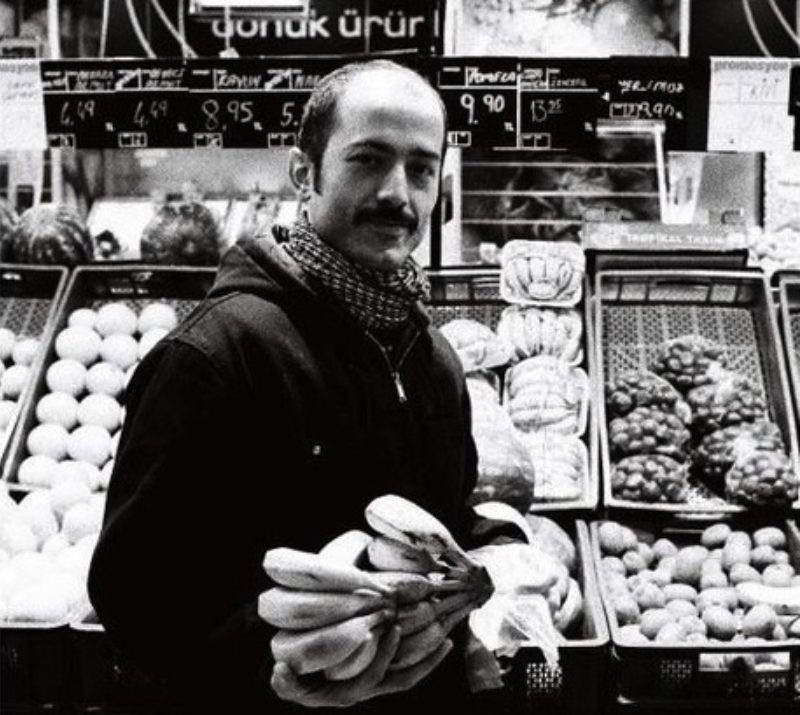Insanlar

Niels Latomme
Hey Barış, how are you? I was wondering in which part of Istanbul you are living?
Barış k
I live close to Taksim, on the Istiklal road, just behind Galatasaray.
NL
From my Western point of view, I have the impression that Insanlar comes out of nowhere. Is this so, or has the band been around since long and are you famous in Turkey?
bk
We are not really famous, nor mainstream, so you can say we are underground. It’s a club curated jam band. My friend Cem Yıldız, who is playing the saz in Insanlar, has a wider audience and is an appreciated musician in world-music. But you cannot consider Cem as ‘mainstream’.
NL
What is the state of the underground music scene in Istanbul?
bk
Turkey has a special situation, musical genres aren’t separated. If you look for ‘underground’ music, you maybe wouldn’t find it so easily. But you have a continuum of genres from post-rock to electronica. A lot of the musicians do not stick to one genre, but think universal. So there’s always a scene, with everywhere pieces. But, like in Europe, if you only follow mainstream bands, it’s hard to get into to things that are beyond that.
NL
Can you tell me about MiniMüzikhol, which seems to be some sort of focal point for Insanlar?
bk
It’s a nightclub near Taksim, in a nice small place, with furniture and carpets. It is a cosy living room in an apartement, located in an old cultural building. In the eighties, this building was a lively cultural centre, with theater, music and even a gay bar. Six years ago, after being in some other places, we became part of it and we took it over in some way. (laughs). It a special building with unique spirits and MiniMüzikhol is the new outcome of it.
The first event we organized, was a festival for which we invited a combination of old Turkish 70ties musicians, from the Anatolian rock and pop scene. There were free concerts, workshops and big concerts in a hangar. The succes of the festival, made us decide to start putting up concerts in the club, ranging from salsa nights to concerts of legendary musicians like Derdiyoklar.
The last one asked us if we knew a band that could back him for his concerts. And we thought that we actually should form him a band instead of finding an existing band. The club had a nice scene, with musicians coming from differerent genres and areas. It gave birth to Insanlar, 5 years ago.
NL
Do you see yourself fit in the tradition of Anatolian Rock Music, like Edip Akbayran and Moğollar?
bk
A part of the band is surely an heir of this scene. For me personally it was the motivation to put us in some direction. And there is no way you can get out of it, of course.
NL
Is Insanlar influenced by the ethnic and sufi traditions of turkish traditional music?
bk
On a philosophical level, the local philosphies of Anatolian Alevis tribes influenced us (one of the main two branches of islam in Turkey, which is centred around Sufi ideas, and displays a humanist form of spiritiuality and freedom, red). The tribe has a lot of elements of Central-Asian, Middle-Eastern and Anatolian traditions. It out a peaceful message, closer to Zen Buddhism. For example the lyrics of Kime Ne, the record we released, come from a Alevi Poem from the 13th Century, which reflects the rebellious attitude very well. So, of course, Insanlar is born into these traditions.
NL
How do you feel about being a part of a festival which claims to highlight the mutual influences between avant-garde music and ethnic music?
bk
Well, I think it’s all about social interaction, like in the renaissance. The Middle-East always kept record of all the old philosophies, and the good parts of it. It lights the fire, even now. If you see all the Arabs at the Gezi park, people are fed up with something, so it’s no surprise that people get inspired by all these old ideas of peace, harmony and humanism.
NL
How do you feel about this refugee crisis, from your point of view, if we take into account that Turkey stands as the port to Europe?
bk
There are bigger political powers at work. State powers, bigger market politics, there’s a lot of things going on there. These people are not fleeing from Syria because of other things, they just try to save their lives. If you stay, you don’t know what you have to face, so they just run. We as a Western country—I see Turkey as a Western country, because we are an instrument of the West—, are responsible for what is happening now and there. And is happening since Iraq, and Afghanistan and we know who to blame.

NL
Talking about that, is Insanlar driven by a political activism?
bk
Not on that level, but a philosophical poem can be stronger then hardcore activism, I think. The message is important. It’s important to find together a better solution, instead of protest blindly and position you against each other. There is a higher level of intimacy at play, or in a more humorous way. But I’d prefer not to be asked… You don’t decide this consciously, it comes naturally. I don’t know what to think about the idea of designing something like that. Insanlar is not a designed band, we don’t have structure, nor rehearsals. It is a jam band, in which we don’t think that much. We are 3 or 4 persons making in the moment a solo live set, and then synchronization and harmony happens. Everybody is free on there own. I hope that it’s about individuals getting connected in the music.
NL
Where you involved of the uprisings against tearing down the trees at the Gezi park (in 2013, Turkish prime minister Erdoğan decided to tear down the Gezi Park for raising new buildings. This decision was the spark for uprisings, giving expression to a lot frustrations of mostly secular Turks about Erdogan’s enlighted dictatorial politics, ed.)?
bk
Some days I was, because some of our activist friends were there. But before the uprisings started. It was nice, but then it became some sort of civil war in which two forces in the country try to crush each other. It didn’t felt right on that moment. But I don’t want to blame anyone, because people were right on what they wanted and needed.
NL
You’re weren’t looking for opposition?
bk
No, I’m not a soldier.I’m not a fighter in that sense. The soldiers and the armed forces are the problem. I cannot get out and be part of another armed group. But in the Syrian case, it’s a different thing. For them, the bombs are at their doors. But here, during the uprisings, I didn’t want to see this anger coming upon this country. But we’ll see after the elections, I’m going to vote and then we will wake up and see nothing has changed. (laughs)
NL
Maybe your music will change things?
bk
Well, I hope so, but it’s a slower and small revolution I think.
NL
I am intriged by the idea of Kara, which is Turkish for ‘black’ literally, but refers to more unseen and not-to-be-spoken-about aspects of the world? Can you tell something about this?
bk
Well, Kara is part of my surname ‘Karademir’, which means ‘dark iron’. And Barış means peace. But about ‘dark’, if I think about all these things happening, last year it culminated in some sort of momentum. this country feels like a dark comedy theater piece.
NL
Ok, thanks a ton for the time and looking forward to see you in Vooruit.